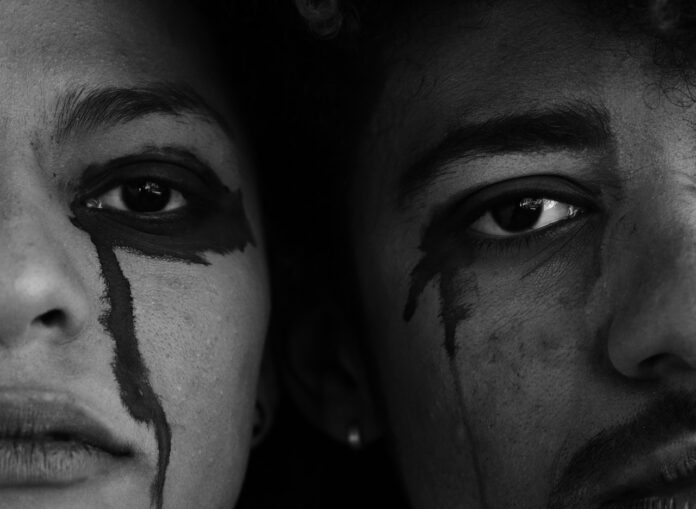
In the realm of speculative biology, numerous “what if” scenarios can spark our imagination and challenge our understanding of the natural world. One such thought experiment revolves around the question: What would happen if humans were cold-blooded? In this article, we will delve into the hypothetical consequences of such a biological change, exploring the potential effects on our physiology, behavior, lifestyle, and society as a whole. Let us embark on this fascinating journey of scientific speculation.
Related: What If Humans Were Immortal?
Related: When Did Humans Start Kissing?
Related: What If Humans Had Tail?
Related: What If Humans Used 100% Of Their Brains?
Related: What If Humans Had Wings?
The Physiology of Cold-Blooded Humans

Under the assumption that humans became cold-blooded, our physiology would undergo profound alterations. Cold-blooded organisms, such as reptiles, depend on external sources of heat to regulate their body temperature. As a result, humans would no longer generate internal heat to maintain a constant body temperature. Instead, they would adopt the temperature of their environment, experiencing variations in their bodily functions based on external conditions.
This shift in physiology would lead to advantages and disadvantages. Cold-blooded humans would be more adaptable to extreme environments, capable of surviving in both scorching deserts and freezing tundras. However, they would also face limitations during colder seasons or in regions with unstable climates, where their activity levels might decrease significantly.
Interesting Fact: One fascinating aspect of cold-bloodedness is the ability of some reptiles to undergo brumation—a state similar to hibernation but specific to cold-blooded animals. During brumation, reptiles, such as snakes and turtles, enter a period of decreased activity and metabolism, often triggered by cooler temperatures or reduced food availability. This adaptation allows them to conserve energy and survive harsh environmental conditions, showcasing the remarkable resilience and adaptability of cold-blooded organisms.
The Behavioral Implications

The behavioral implications of humans becoming cold-blooded are multifaceted. One of the most significant changes would be in our energy consumption patterns. Cold-blooded organisms, by nature, have slower metabolic rates, as they do not need to expend energy to maintain a stable body temperature. As a result, humans would require less food and would be able to survive for longer periods without eating.
However, this slower metabolism would also result in reduced overall energy levels. Cold-blooded humans would find themselves less energetic and perhaps more lethargic than before. This could affect their productivity, motivation, and ability to engage in physically demanding tasks, potentially altering societal norms and expectations regarding work and leisure.
Hm… this kind of resembles how many humans behave already today because of different social media.
Adaptations to Environmental Challenges

With the transition to cold-bloodedness, humans would need to adapt to new challenges posed by their reliance on external heat sources. They might develop mechanisms to maximize heat absorption or minimize heat loss, such as changes in skin pigmentation or modifications to their circulation system. These adaptations would enable humans to regulate their body temperature more effectively and improve their survival chances in a wider range of environments. However those changes would only come after hundred of thousand years of evolution.
Related: What Will Evolve After Humans?
Moreover, the reliance on external heat sources would likely foster cultural and technological innovations. Humans may develop new forms of clothing and shelter designed to optimize heat retention or dissipation. Additionally, advancements in renewable energy sources, such as solar power, would gain even greater significance, becoming indispensable for both personal and societal needs.
Societal and Economic Transformations

The transition to cold-bloodedness would undoubtedly trigger profound societal and economic transformations. Human societies have traditionally thrived on activities that require constant energy expenditure, such as agriculture, industry, and transportation. However, with reduced energy levels and a slower metabolism, these sectors would likely experience significant disruption.
New economic models might emerge, focusing on energy conservation and efficiency rather than continuous growth and consumption. Alternative forms of work and leisure, more aligned with the limited energy reserves of cold-blooded humans, would gain prominence. Furthermore, there could be a shift in societal values, with a greater emphasis on rest, contemplation, and harmony with the natural world.
Cold-Bloodedness and Sexual Life

Exploring the hypothetical scenario of humans being cold-blooded additionaly raises intriguing questions about the potential impact on our sexual lives. Perhaps our technology advancements are already leading to completely different sexual world as we explained in one of our articles.
Nonetheless, let’s delve into some additional possible implications:
1. Reproductive Cycles: Cold-blooded animals often exhibit distinct reproductive cycles that are influenced by environmental factors such as temperature and photoperiod. If humans were cold-blooded, it is plausible that our reproductive cycles would undergo changes as well. Factors like seasonal variations in fertility and mating behaviors could become more prominent, potentially impacting family planning and societal dynamics.
2. Courtship Rituals: Cold-blooded organisms have diverse courtship rituals, which can include displays of color, calls, dances, or elaborate behaviors. If humans became cold-blooded, our courtship rituals might undergo transformations as well. Imagining a world where elaborate displays or behaviors become part of human courtship is both fascinating and thought-provoking.
3. Influence of Temperature on Sexual Function: Temperature can affect sexual function in cold-blooded animals. For example, reptiles often require specific temperature ranges for optimal reproductive activities, such as sperm production or egg development. If humans were cold-blooded, our sexual function might be influenced by temperature variations, potentially requiring specific conditions to enhance fertility or reproductive success.
4. Shifts in Reproductive Strategies: Cold-blooded organisms employ a variety of reproductive strategies, such as producing numerous offspring with minimal parental care or investing heavily in a smaller number of offspring. If humans became cold-blooded, our reproductive strategies might also shift, potentially leading to alterations in family structures, parental investment, and the dynamics of raising and nurturing offspring.
5. Cultural and Social Perspectives: Cold-bloodedness and its potential influence on sexual life would undoubtedly provoke discussions and debates within cultural and social contexts. The perception of romance, love, intimacy, and sexual attraction might evolve as we adapt to new reproductive patterns and behaviors. Ethical considerations, societal norms, and personal relationships could be reshaped in fascinating and perhaps unexpected ways.
It is important to note that the speculative nature of this topic allows for a wide range of possibilities and interpretations. The complexities of human sexuality and the interplay of biological, psychological, and cultural factors make it difficult to predict with certainty how cold-bloodedness would specifically impact our sexual lives. However, contemplating these possibilities encourages us to reflect on the profound connections between our biology and the intricacies of human relationships.
Ethical Considerations and Moral Dilemmas

The concept of humans becoming cold-blooded raises intriguing ethical considerations and moral dilemmas that warrant exploration. While this hypothetical scenario exists purely in the realm of imagination, contemplating the ethical implications can shed light on our values, responsibilities, and the complex nature of ethical decision-making. Here are some key areas of ethical consideration and potential moral dilemmas that might arise:
- Responsibility for Climate Control: If humans were cold-blooded, ensuring appropriate environmental conditions for survival would become crucial. This could pose ethical questions about our responsibility to create and maintain suitable habitats or climate-controlled environments. Should society be obligated to provide adequate temperature regulation for individuals, or would it be considered a personal responsibility?
- Resource Allocation: Cold-bloodedness could impact resource allocation on both individual and societal levels. The need for external heat sources and temperature control may require additional energy consumption, potentially straining already limited resources. Ethical dilemmas could arise when determining fair distribution of resources and balancing the needs of cold-blooded individuals with the broader population.
- Implications for Reproduction: The potential changes in reproductive cycles and strategies in cold-blooded humans raise ethical questions related to reproductive autonomy, family planning, and societal expectations. Should individuals have control over their reproductive cycles, or would there be external pressures to align with specific mating seasons or fertility patterns? Balancing personal choice with potential societal imperatives could present moral dilemmas.
- Environmental Impact: Humans transitioning to a cold-blooded existence might impact ecosystems and biodiversity. The need for specific temperature ranges and environmental conditions could lead to increased demand for heat sources, potentially disrupting natural ecosystems or exacerbating climate change. Ethical considerations arise when evaluating our responsibility to minimize negative impacts on the environment and preserve biodiversity.
- Social Equity and Inclusion: The transformation to cold-bloodedness might introduce new disparities and challenges related to temperature regulation and access to suitable environments. Socioeconomic factors could influence an individual’s ability to afford temperature-controlled spaces or energy-intensive climate control systems. Ensuring social equity and inclusivity in a world of cold-blooded humans would be paramount but could present ethical challenges.
- Social Norms & Laws: Cold-bloodedness would likely necessitate changes in cultural, social norms and laws, challenging existing beliefs, traditions, and practices. Ethical dilemmas could arise when determining how society adapts to these changes while respecting individual freedoms, cultural diversity, and the preservation of valued practices and customs.
- Animal Welfare: Considering the inherent connection between humans and other cold-blooded animals, questions of animal welfare and conservation arise. Ethical dilemmas could emerge in balancing the potential exploitation or harm of cold-blooded animals for human benefit while promoting their welfare and preserving their habitats.
- Personal Identity and Autonomy: The transformation to cold-bloodedness would fundamentally alter our physiological and behavioral characteristics. This raises ethical questions about personal identity and autonomy. How would individuals perceive their identity and sense of self in a world where being cold-blooded is the norm? Would personal autonomy be respected when it comes to temperature preferences and lifestyle choices?
Exploring these ethical considerations and moral dilemmas helps us engage in thoughtful discussions about the potential implications of major biological changes. While the hypothetical nature of this scenario keeps it firmly in the realm of speculation, reflecting on these ethical aspects allows us to deepen our understanding of the values, responsibilities, and complex choices we face as humans in our current reality.
Conclusion
In the realm of scientific speculation, imagining a world where humans are cold-blooded invites us to explore the potential consequences across various aspects of our existence. From the physiological changes to behavioral adaptations, societal transformations, and even the realm of sexual life, this hypothetical scenario sparks curiosity and prompts us to consider the intricate interplay between biology, culture, and personal experiences.
While the notion of cold-blooded humans remains firmly within the realm of imagination, pondering these scenarios stimulates our intellectual curiosity and enriches our understanding of the human condition. By contemplating alternative paths and possibilities, we gain a deeper appreciation for the complexity and adaptability of life on Earth.
…and at the end we’d like to share couple of interesting facts about cold-bloodedness.
Did you know?

1. Did you know that cold-blooded animals can adjust their body temperature by seeking out warm or cool areas in their environment? This behavior, known as behavioral thermoregulation, allows them to optimize their metabolic functions and adapt to changing temperatures.
2. Did you know that some cold-blooded creatures, like the green sea turtle, can travel thousands of miles to reach their nesting grounds? These incredible migrations highlight their navigational abilities and their dependence on external environmental cues for successful reproduction.
3. Did you know that cold-blooded animals can survive for extended periods without food? Due to their lower metabolic rates, they can sustain themselves on limited energy reserves and endure long periods of fasting, showcasing their impressive energy efficiency.
4. Did you know that certain cold-blooded animals, such as the African lungfish, are capable of aestivating, a form of dormancy that allows them to survive in dried-out or arid environments? Aestivation enables them to reduce their metabolic activity and conserve energy until favorable conditions return.
5. Did you know that cold-blooded animals have the ability to regenerate lost body parts? Some species, like salamanders, can regrow entire limbs, tails, or even parts of their hearts and spinal cords. This remarkable regenerative capacity is a unique attribute of cold-blooded organisms. Perhaps humans would be able to do the same if we were coldblooded.
6. Did you know that cold-blooded animals, such as reptiles, rely on external heat sources, such as the sun, to raise their body temperature and facilitate digestion? Basking in sunlight helps them optimize their metabolic processes and aids in the digestion of food.
7. Did you know that some cold-blooded animals, like certain species of frogs, can enter a state of suspended animation called cryogenic freezing? These animals can withstand freezing temperatures by producing special proteins that prevent ice crystal formation and protect their cells from damage.
8. Did you know that many cold-blooded animals have remarkable camouflage abilities? From chameleons that can change their skin color to blend into their surroundings to stick insects that resemble twigs or leaves, these adaptations help them evade predators or become more effective hunters.
9. Did you know that cold-bloodedness is not exclusive to reptiles and amphibians? Some fish, such as sharks and rays, are also cold-blooded. These marine creatures rely on the surrounding water temperature to regulate their body temperature and metabolic functions.
10. Did you know that cold-blooded animals play crucial ecological roles? They contribute to nutrient cycling, control insect populations, and serve as important links in food chains and ecosystems worldwide, underscoring their significance in maintaining ecological balance.
These intriguing facts highlight the diversity and extraordinary capabilities of cold-blooded organisms, shedding light on their unique adaptations and their vital roles in the natural world.
We hope you enjoyed this article.
Note: If you enjoyed this article you might also enjoy following articles on topic of “What would happen if”:
- What If Humans Could Photosynthesize?
- What Would Happen If Everyone Stopped Spending Money?
- What If Everyone Stopped Working?
- What would happen if Moon disappeared?
- What Would Happen If The Moon Exploded
- What Would Happen If Jupiter Disappeared?
- What Would Happen If You Fell Into A Black Hole?
- What Would Happen If The Moon Exploded
- What Would Happen If The Earth Stopped Spinning?
- What If Everyone On Earth Jumped At The Same Time?
- What would happen if water disappeared on Earth?
- What would happen if lying never existed?
- What would happen if gravity suddenly disappeared?
- What would happen if everyone stopped having children?
- What would happen if mosquitoes went extinct?
- …and many more.




















